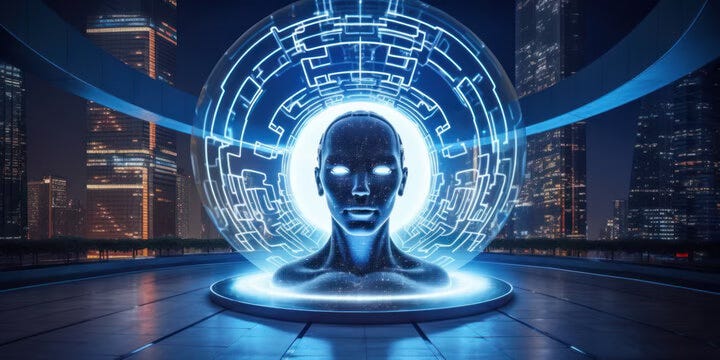The Singularity is Near
Where will the rapid acceleration in the capabilities of A.I. lead humanity?
The most famous futurist in the world is Ray Kurzweil, whom I’ve had the privilege of meeting at the A360 futurism conference in Los Angeles. Currently the Director of Engineering at Google, Kurzweil has invented groundbreaking technologies such as Optical Character Recognition, the world's first electronic keyboard, and the first speech recognition software. He is also a pioneer in the field of artificial intelligence (AI).
Kurzweil is renowned for his predictions about the future of technology, particularly his theory of "The Singularity"—a point where AI surpasses human intelligence, leading to rapid, uncontrollable, and irreversible technological growth. His predictions have sparked fascination and debate among technologists, academics, and the general public.
A few years ago, many viewed Kurzweil’s prediction of the singularity occurring around 2030 as unrealistic. However, with the advent of highly intelligent Large Language Models (LLMs) like ChatGPT, which can answer sophisticated questions in natural language, his prediction now seems not just likely but probable, and imminent. Elon Musk recently predicted that a super-intelligent AI might emerge around 2025 or 2026.
During one of my trips to the USA, I encountered a billboard that said, "Call this number and talk to me to see how you could save money on your call center." The call was answered by an AI that seemed human, could discuss various topics, and keep the conversation on point—powered by ChatGPT. Such “magical” level machine intelligence is becoming increasingly common.
In the near future, Apple will release iOS 18, which will integrate AI throughout the operating system. Soon, iPhone users will have intelligent personal assistants capable of tasks like purchasing tickets or changing travel plans. This is not fantasy; it is imminent.
Currently, AI functions as a helpful chatbot. Within a year, it will evolve into a more autonomous entity, akin to a useful employee or friend. Once AI can outperform a human AI researcher, it will continuously improve itself. At that point, it might only be months, weeks, or even days before AI intelligence surpasses human comprehension.
AI already exceeds human capabilities in specific areas such as Chess and Go. Computers are now making strides in art and music composition, and more records will likely fall.
It is clear that advanced AI is arriving soon. The critical question for individuals, businesses, and employees is, "Are you ready?"
While it’s uncertain which jobs AI will replace, one thing is evident: A human using AI will ALWAYS outperform a human not using AI.
Prepare for the wave! We are living in the most exciting time in human history.



Back in the 1980’s, Auckland Libraries got a Kurzweil reading machine for the blind. It had the most hideously monotonous machine voice, but it was the start. Now it’s hard to determine the difference between an AI generated voice and a human voice, all in the space of a four decades.